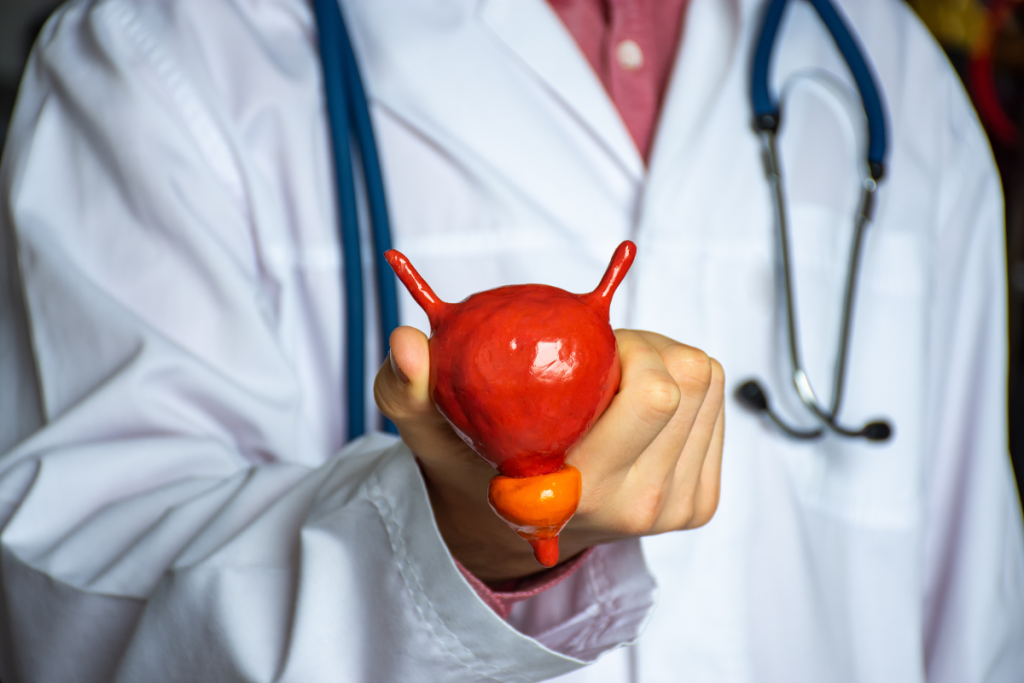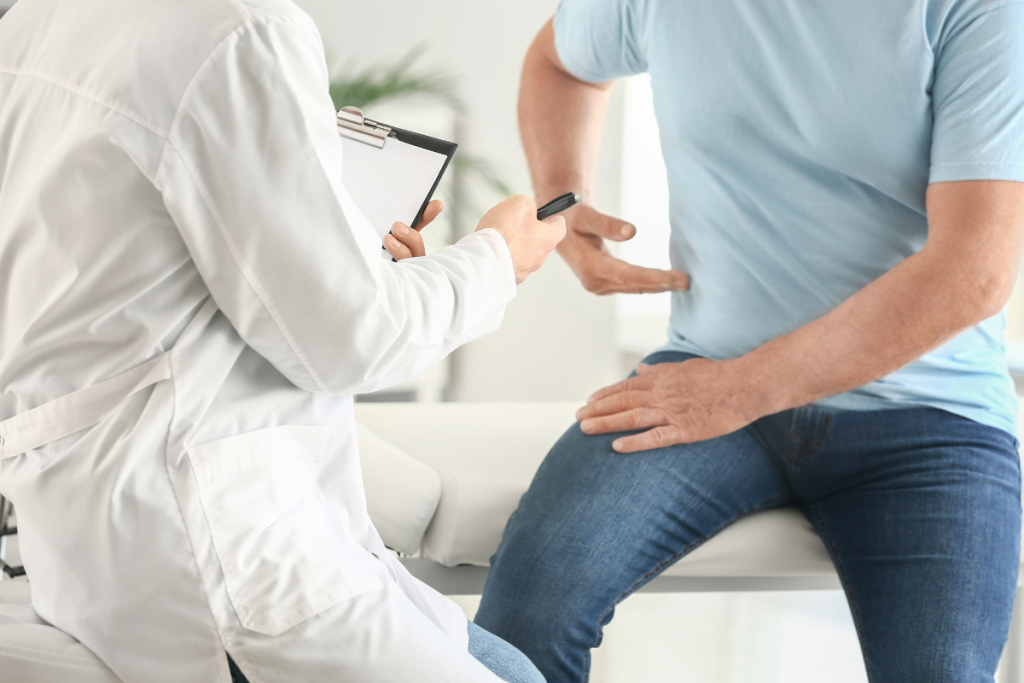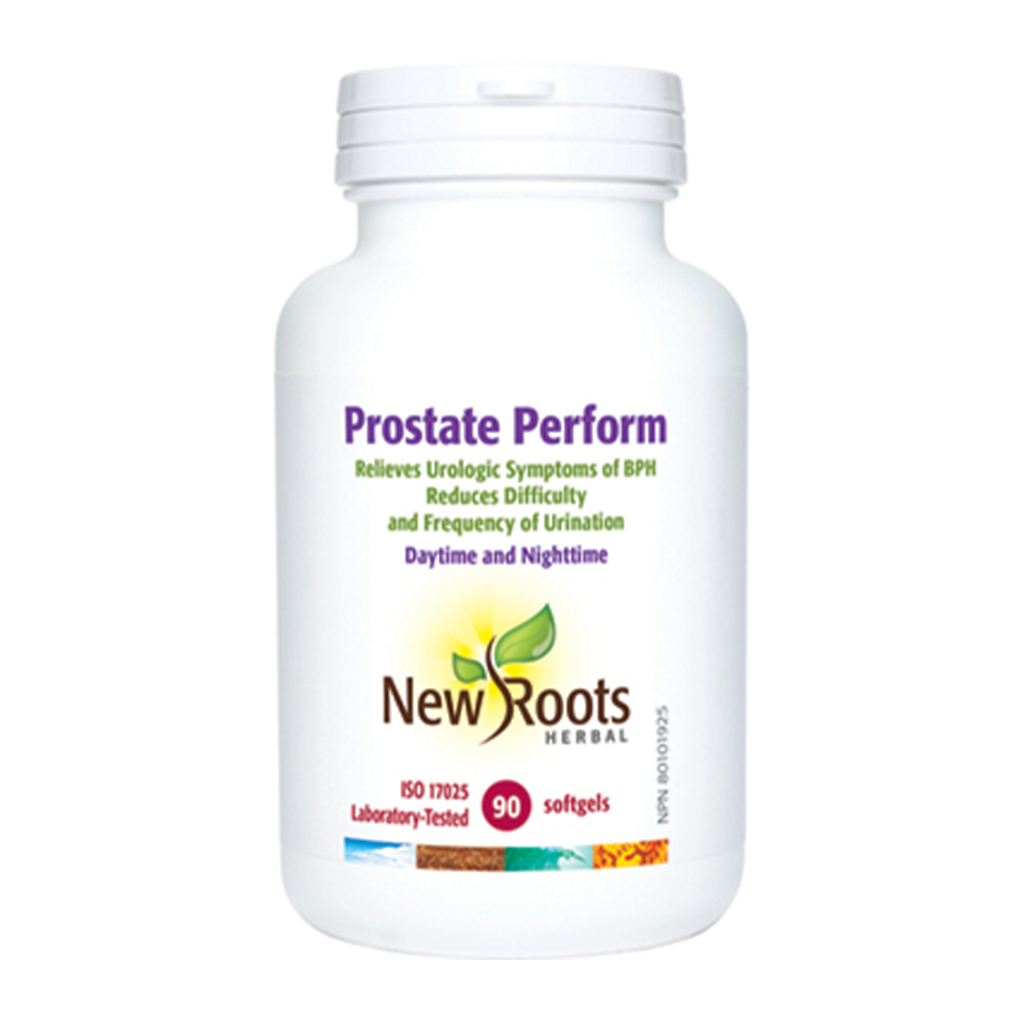Welcome to a crucial guide crafted especially for women, focusing on a topic that’s often sidelined in men’s health – their prostate. This article is dedicated to understanding men’s prostate issues, a subject that’s not only vital but also frequently overlooked. We’re all too familiar with the tendency of men to neglect their health concerns, and as women, we often find ourselves in the position of encouraging the men in our lives to take better care of themselves. Let’s dive into this guide, aimed at demystifying prostate health and empowering us to support the men we care about.
Understanding the Prostate Gland
The prostate gland, though small, plays a mighty role in men’s health. Ludovic Brunel explained recently on What She Said, “It’s essential for the male reproductive system, producing a fluid that aids sperm in their vital mission.” This walnut-sized gland is a key player in reproduction, but with age, it can become a source of concern.

What is BPH?
Benign Prostatic Hyperplasia, or BPH, is a common condition where the prostate gland enlarges. Ludovic simplifies it: “Think of it like too many marbles in a balloon. As men age, the cells in the prostate multiply, causing it to grow.” This growth can lead to discomfort and health issues as men enter their 40s and beyond.

Symptoms and Effects of an Enlarged Prostate
An enlarged prostate can significantly impact a man’s daily life, particularly as he ages. The prostate’s growth can lead to a range of discomforts and health issues, primarily due to its pressure on the bladder and urethra. Here are some of the telltale signs to watch out for:
- Increased Frequency of Urination: As the prostate enlarges, it can press against the bladder, leading to a frequent need to urinate.
- Weak Urine Stream: The pressure on the urethra can cause a weaker urine flow, making it difficult to empty the bladder fully.
- Nocturia: One of the most common and disruptive symptoms is nocturia – the need to urinate frequently during the night, which can significantly disturb sleep. Ladies, this one will likely impact you the most.
- Incomplete Bladder Emptying: Men may feel that their bladder isn’t completely empty, leading to discomfort and an increased risk of urinary tract infections.
- Urgency to Urinate: A sudden, urgent need to urinate can also be a symptom of an enlarged prostate.
Understanding these symptoms is crucial, as they can affect not only the physical health but also the quality of life, including sleep patterns and overall well-being.

Distinguishing BPH from Prostate Cancer
It’s crucial to differentiate the symptoms of BPH from those of prostate cancer. Ludovic advises, “As soon as these symptoms appear, it’s important to undergo tests like the prostate-specific antigen test to rule out cancer.”
Treatment and Side Effects for BPH
Conventional treatments for BPH often involve prescription drugs, which can have side effects like decreased libido and mood changes. Ludovic cautions, “These medications affect hormones, so it’s important to be aware of the potential impacts on one’s overall wellbeing.”

Prevention and Natural Solutions for Maintaining Prostate Health
Prevention is key, and natural solutions can play a role. “Supplements like saw palmetto extract have shown effectiveness in preventing excessive prostate growth,” says Ludovic. For those interested in a natural approach, New Roots Herbal’s Prostate Perform is a great option to explore.

Role of Diet and Lifestyle in Prostate Health
The importance of diet and lifestyle in maintaining prostate health cannot be overstated. A balanced, nutritious diet and a healthy lifestyle play a pivotal role in supporting prostate wellness. Here are some key factors to consider:
- Healthy Eating: Incorporating a diet rich in vegetables, fruits, and whole grains can significantly benefit prostate health. Foods high in antioxidants and anti-inflammatory properties are particularly beneficial.
- Maintaining a Healthy Weight: Obesity is a known risk factor for various health issues, including prostate problems. Keeping a healthy weight through diet and exercise can help in reducing these risks.
- Regular Exercise: Regular physical activity not only helps in maintaining a healthy weight but also contributes to overall health, which in turn can benefit the prostate.
- Reducing Processed Foods: Limiting the intake of processed and high-fat foods can help in maintaining a healthy prostate.
- Moderation in Alcohol Consumption: Excessive alcohol intake can have adverse effects on overall health, including the prostate. Moderation is key.
- Avoiding Tobacco Products: Smoking and tobacco use are detrimental to overall health and can exacerbate prostate issues.
Adopting these lifestyle changes can have a profound impact on prostate health and overall well-being. It’s about creating a balanced approach to life that nurtures the body in every aspect.

Understanding men’s prostate issues is vital for both men and women. As we support the men in our lives, being informed about conditions like BPH is crucial. If you or someone you know is experiencing symptoms, don’t hesitate to seek medical advice. And remember, taking care of each other’s health is a journey we’re all on together.
Special thanks to Ludovic Brunel for his insights on this important topic. This post is graciously sponsored by New Roots Herbal, committed to providing information and natural solutions for What She Said’s listeners’ health needs.